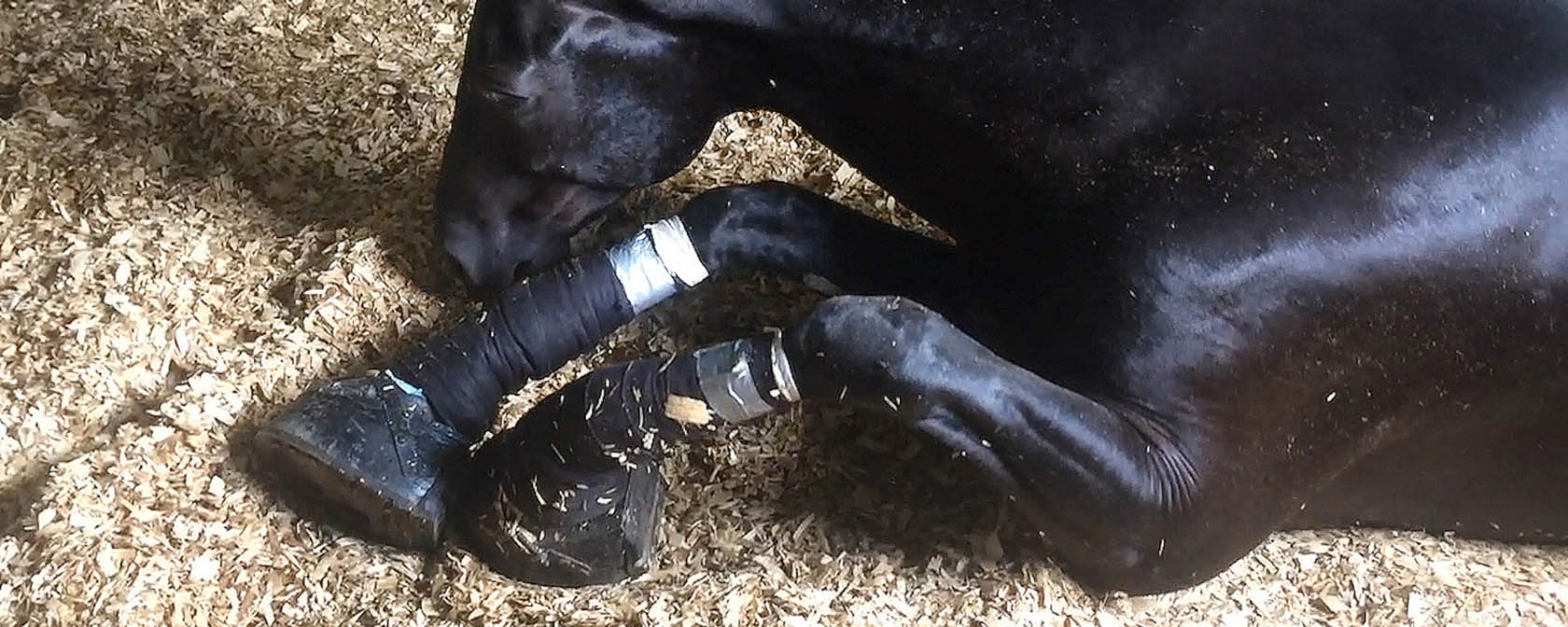By Sara Amundson and Kitty Block
Some really good news from a federal courtroom on a fight we’ve long been waging for horses: Last Friday, the U.S. Court of Appeals for the District of Columbia Circuit ruled that the United States Department of Agriculture had unlawfully withdrawn a 2017 rule designed to fix the agency’s weak regulations that have allowed horse soring to persist within the Tennessee walking horse industry. Along with several individual plaintiffs, we filed a lawsuit that challenged the USDA’s withdrawal of the rule, which had been finalized and publicized by the agency, and we prevailed.
For many decades, humane organizations have been trying to root out soring—the intentional infliction of pain on a horse’s legs or hooves to force the animal to perform an artificial, exaggerated high stepping gait. But it’s been difficult to achieve, despite hard-hitting investigations and exposés, a damning audit by the agency’s own Inspector General, sweeping bipartisan support for strong legislation in the U.S. Congress for about a decade, and the pressure we and others have brought to bear on the USDA and its enforcement of the Horse Protection Act of 1970. That law and the agency’s regulations under it contain loopholes that have allowed dishonest parties within the walking horse community to continue soring horses while chasing ribbons at shows and competitions—loopholes that must be closed if we are to realize the intended purposes of the Act and finally shut down soring.
We believed our own efforts to strengthen those regulations had succeeded when, in the last weeks of the Obama administration, the USDA announced a final rule to upgrade its enforcement protocols under the Horse Protection Act. The 2017 rule featured important changes to protect horses in the Tennessee walking and racking horse breeds from soring, including a ban on the use of “stacks” (heavy platform shoes), chains and other cruel and painful devices and practices intended to produce the showring gait called the “Big Lick.”
The fight against horse soring requires vigilance in ensuring that people do their jobs to enforce the law. The 2017 rule also eliminated an industry inspection program that USDA’s Inspector General said wasn’t working and needed to be abolished. That scheme, on which the agency still relies, gives enforcement responsibility to some of the very parties with an incentive to perpetuate soring. The 2017 rule scrapped this failed industry self-policing system and replaced it with a network of independent, third-party inspectors who would be licensed, trained and overseen by the agency.
The Obama administration submitted the signed final rule to the Office of the Federal Register. That Office posted the rule for public inspection but failed to publish it in the Federal Register before Donald Trump took office as president. His incoming administration withdrew the rule without explanation. Then, nothing happened. No implementation of the 2017 rule, and no reform, for four years, stalling progress in this work to protect horses from soring.
In the lawsuit, we argued that the USDA’s withdrawal of the rule violated the procedures agencies must follow under federal administrative law. While the District Court sided with the agency and dismissed the suit, on appeal the D.C. Circuit found that the USDA did violate federal law by withdrawing the rule without the notice and comment required under federal law when agencies repeal final rules. The case was remanded to the lower court for further proceedings.
In the Congress, in the courts, in the media—in short, wherever we have to carry the fight—we have been pushing for robust enforcement of the federal law against horse soring for many years. As we await the regulatory changes resulting from our successful suit, we continue our efforts to pass legislation to stop soring via the Prevent All Soring Tactics (PAST) Act. This bipartisan bill (H.R. 5441/S. 2295), co-sponsored by more than half of the House and Senate, would codify the essential reforms in the 2017 rule and strengthen penalties, bringing a definitive end to the scourge of soring.
Astonishingly, there is an irresponsible faction in the movement pushing a Trojan horse alternative to PAST, recklessly and naively. They negotiated their replacement bill with walking horse industry interests that celebrate the “Big Lick” show gait. The latter parties don’t want real reform to end soring; they want to see it flourish. Their bill would weaken the Horse Protection Act, reinforce the industry’s failed self-policing system and require inspection protocols designed to prevent violations from ever being cited. It would allow continued use of devices integral to soring. Fundamentally, this deceptive substitute would make it impossible for the agency to implement the regulatory changes needed to bring the protections originally promised by the Horse Protection Act to the victims of soring.
Horse soring is one of those cruelties that hangs around, defying gravity in a moral sense if we take into account the strong public opinion that runs against it. But it is also an example of unfinished business in the political sphere. Congress set out to abolish soring half a century ago, but fell short, even as one administration after another has failed to complete the task. Horses in need of protection shouldn’t have to wait any longer. And as we proved through our lawsuit, neither should we.
Kitty Block is President and CEO of the Humane Society of the United States.




